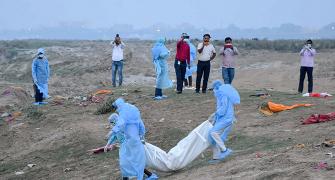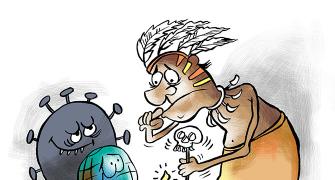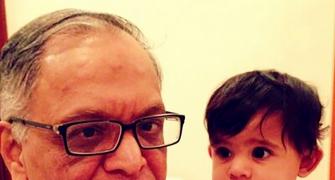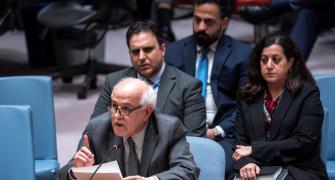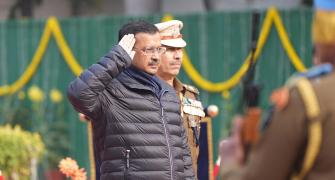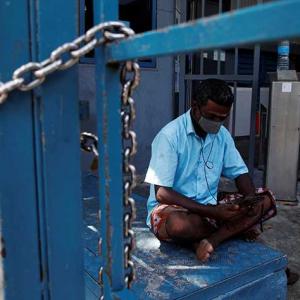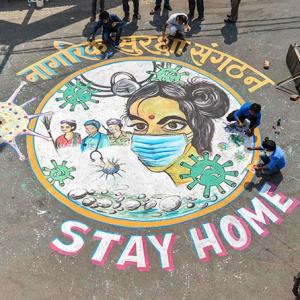'It is not the country's interests alone that lead to all this secrecy.'
'More usually, the reason is the threat from political rivals: What will they do if they find out?', notes T C A Srinivasa Raghavan.
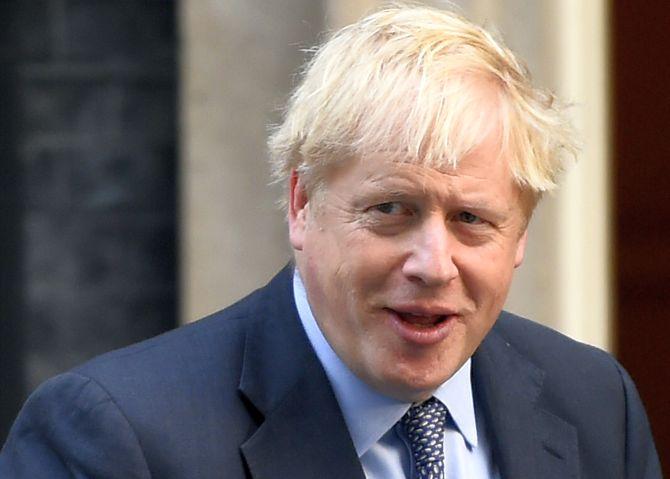
Boris Johnson, the British prime minister, was in a London hospital this month because of the China virus.
It is useful, in this context, to remind readers of an age-old dilemma that societies face -- should the fact that the leader is gravely ill be kept secret or made public?
The problem has been coming up for a long time.
Caligula, the third Roman emperor 2,000 years ago, was slowly going mad, but only two people knew.
In India, only a few knew that Aurangzeb fell prey around 1700 to a host of unspecified diseases. He died in 1707.
In fact, you can take almost any great political leader anywhere in the world and you will find the same story.
This is to be expected because, after all, all these people, despite their attempts to convince the world to the contrary, were human, not gods, and it's a great human frailty to hide illness.
It happens in families.
It happens in business houses.
It happens in sports teams.
So why not in governments?
This issue of health secrecy was discussed threadbare in the UK back in the 1960s, when Lord Moran, Winston Churchill's personal physician, published his memoirs, which I have read and of which I have a copy, purchased for five pounds in 1983 in a second-hand book shop in London.
He revealed there that Churchill had had a stroke and heart attack in 1942.
The question Lord Moran raised was whether it was ok for such a sick leader to continue in office at a time of massive crisis.
A whole lot of loyal Brits, the sort that reads the The Daily Telegraph, were deeply offended and asked whether it was ok for a doctor to betray patient confidentiality.
But Churchill had died in 1965, so that question was disposed of quite easily, if indeed it had ever been relevant, given the size of the crisis and the office Churchill occupied.
The anger was more because a national icon had been shown to be less than Superman, that too by someone who could not but be telling the truth.
In sickness and in health
But there was, and is, no ducking the larger issue that Lord Moran raised: Is it ok for a very sick leader to continue in office at a time of massive crisis? To what extent does the illness impair judgement?
Hitler, for example, had been suffering from syphilis-induced mental issues from about 1943 and went on to make huge mistakes that cost a few million lives.
These mistakes have been well documented.
If Churchill was very ill, so was the American president, Franklin Delano Roosevelt.
He had been having smoking-related heart problems from 1940 onwards.
He eventually died of massive heart failure in April 1945, four months before the Second World War ended. But the exact state of his health was kept a secret.
Stalin seems to have been luckier even though he too was a smoker and was in his mid-60s during that time.
But, then, we know very little about his health even now.
None of his major biographers has been able to throw much light on it.
And no personal physician has dared to write about it.
Nor must we forget the memoirs of Mao Zedong's physician, Li Zhisui, which I have also read.
Mao may not have been involved in any major global crisis, but from the late 1960s till his death in 1976, he was very ill.
No one was told, of course. Richard Nixon, the American president, when he visited China in February 1972, had no clue.
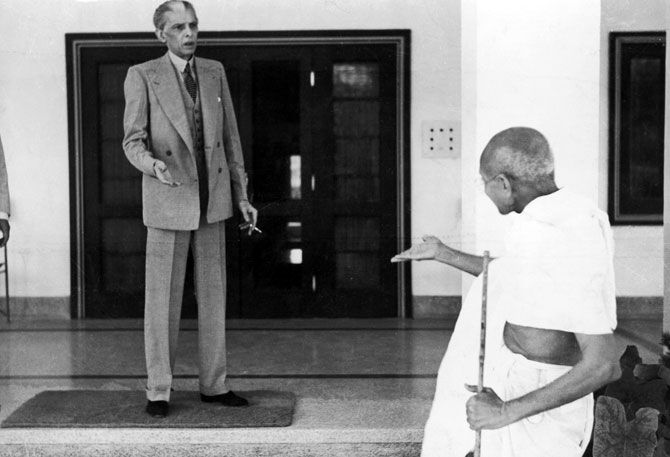
Why they do it
It is generally put out that even though the health of the head of the government is a matter of national interest, it should not be a matter of national debate.
This may well be true in some limited sense, for a while, as during a major threat to the country.
But from what I have been able to learn from biographies and histories, it is not the country's interests alone that lead to all this secrecy.
More usually, the reason is the threat from political rivals: What will they do if they find out?
The state of Mohammad Ali Jinnah's health was known only to his doctor, Jal Ratanji Patel.
He kept it a complete secret. Jinnah died in September 1948 of that illness.
In contrast, the state of Gandhiji's health was known to all.
Gandhiji, in fact, revelled in discussing it.
Was it because he had no rival to worry about?


